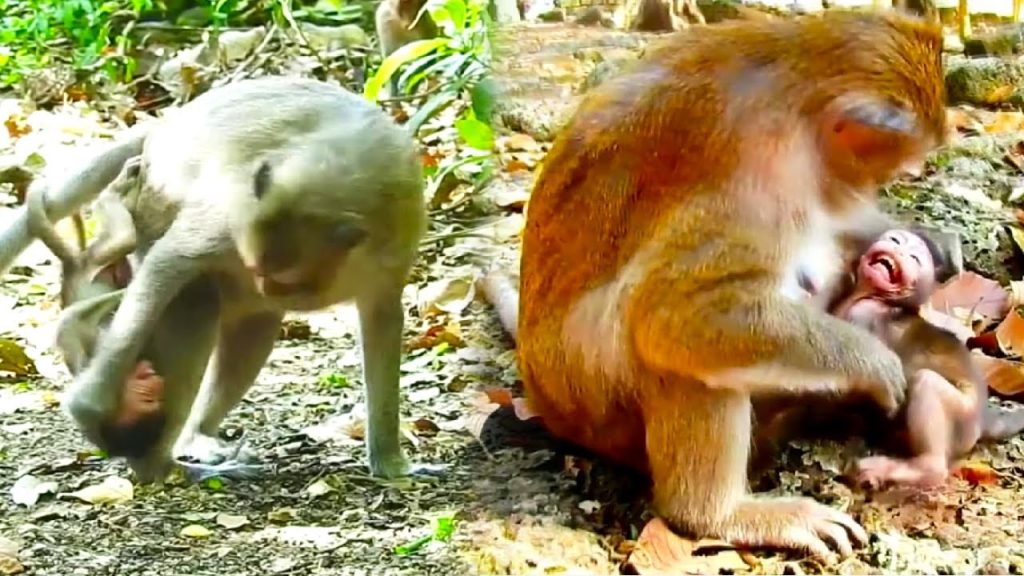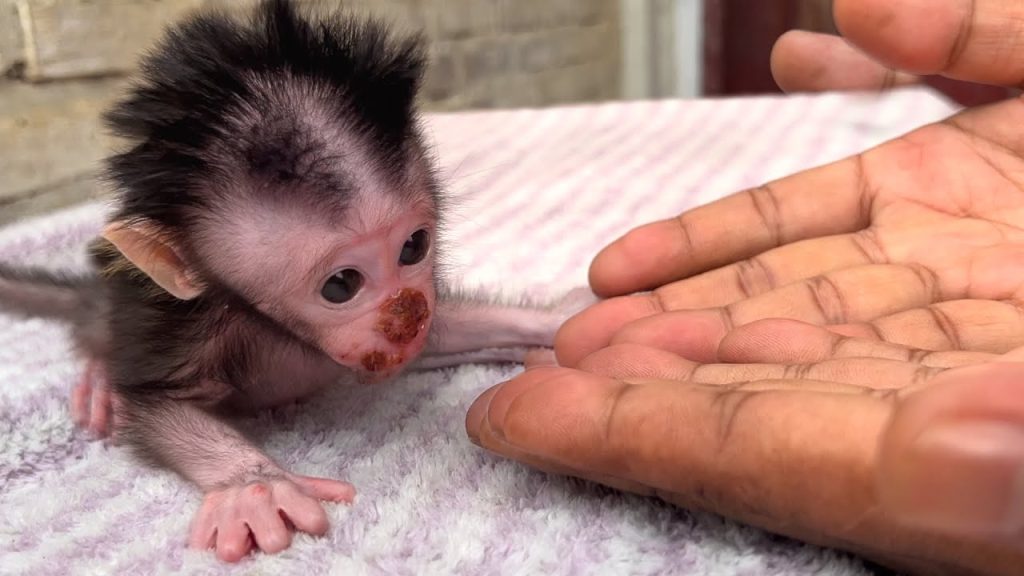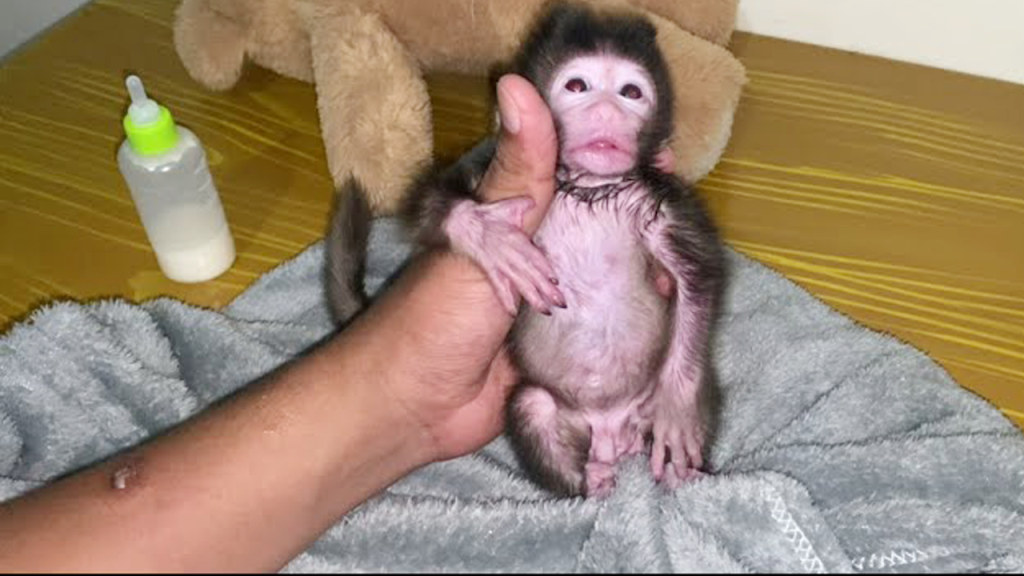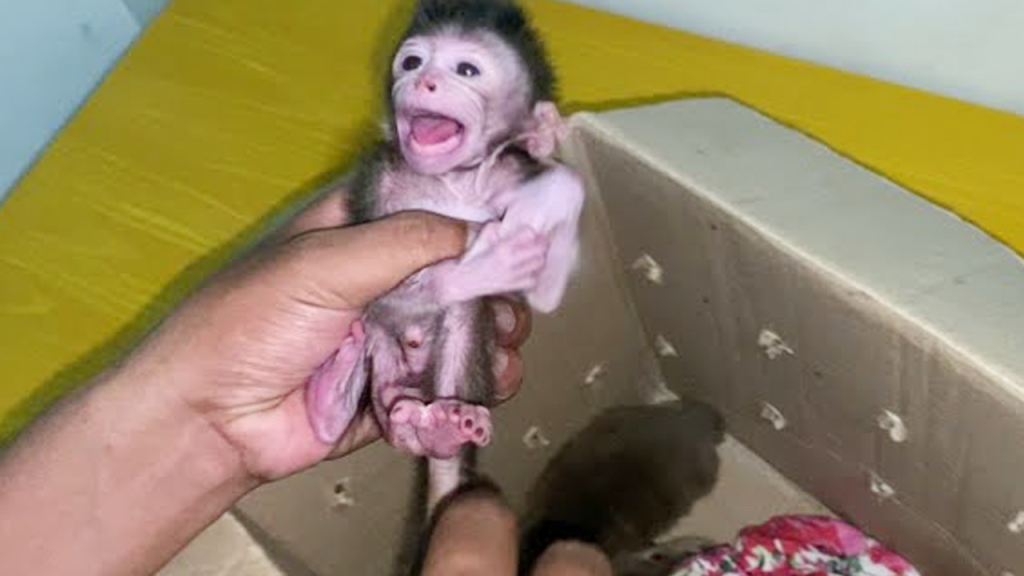
In the animal world, the bond between a mother monkey and her baby is among the strongest and most enduring. But as the baby grows, nature calls for an important transition: weaning. For one devoted mother, this natural step became a daily challenge, as her spoiled little one refused to give up nursing.
The baby, already several months old, was healthy, active, and quite capable of eating solid foods. Other young monkeys his age had begun exploring fruits, leaves, and insects with curiosity, gradually relying less on their mothers’ milk. But this youngster had different ideas. He still clung tightly to his mother’s belly, demanding milk at every opportunity, his tiny hands gripping her fur like he never wanted to let go.
The mother tried her best to gently push him away. She would shift her body, climb to another branch, or turn so he couldn’t reach her chest. But the baby was persistent. The moment she paused, he would scramble into position, making small, impatient sounds until he latched on. Sometimes, his demands came in the middle of the troop’s foraging time, pulling her away from eating enough herself.
Other troop members seemed to notice the ongoing battle. Youngsters played together nearby, while the mother and her clingy baby engaged in their quiet tug-of-war. The baby’s spoiled behavior may have been the result of an overprotective start—his mother had faced dangers early in his life, and perhaps she had let him nurse longer than usual to comfort him. Over time, this habit turned into dependency.
Weaning is more than just stopping milk; it’s a critical stage in a young monkey’s growth. It teaches independence, social skills, and how to find food. For the mother, it is also physically demanding to continue nursing for too long—especially when she needs her strength for future offspring.
The struggle continued for days. At times, the mother became more assertive, giving a firm push or even moving away with a slight growl to signal “enough.” The baby would protest with loud cries, clinging to her leg or jumping onto her back. Yet, each day, the moments between nursing grew slightly longer.
Gradually, the baby began nibbling at fruits and leaves during the troop’s feeding times. He still ran to his mother often, but now he could be distracted by play or other foods for longer periods. The mother, though tired, seemed patient—perhaps knowing that this was a slow but necessary process.
In time, the spoiled baby would no longer be spoiled, and the mother would be free from the constant demands. But for now, their struggle showed the tender, complicated side of animal parenting—where love and discipline walk hand in hand, and letting go is just as much an act of care as holding on.


